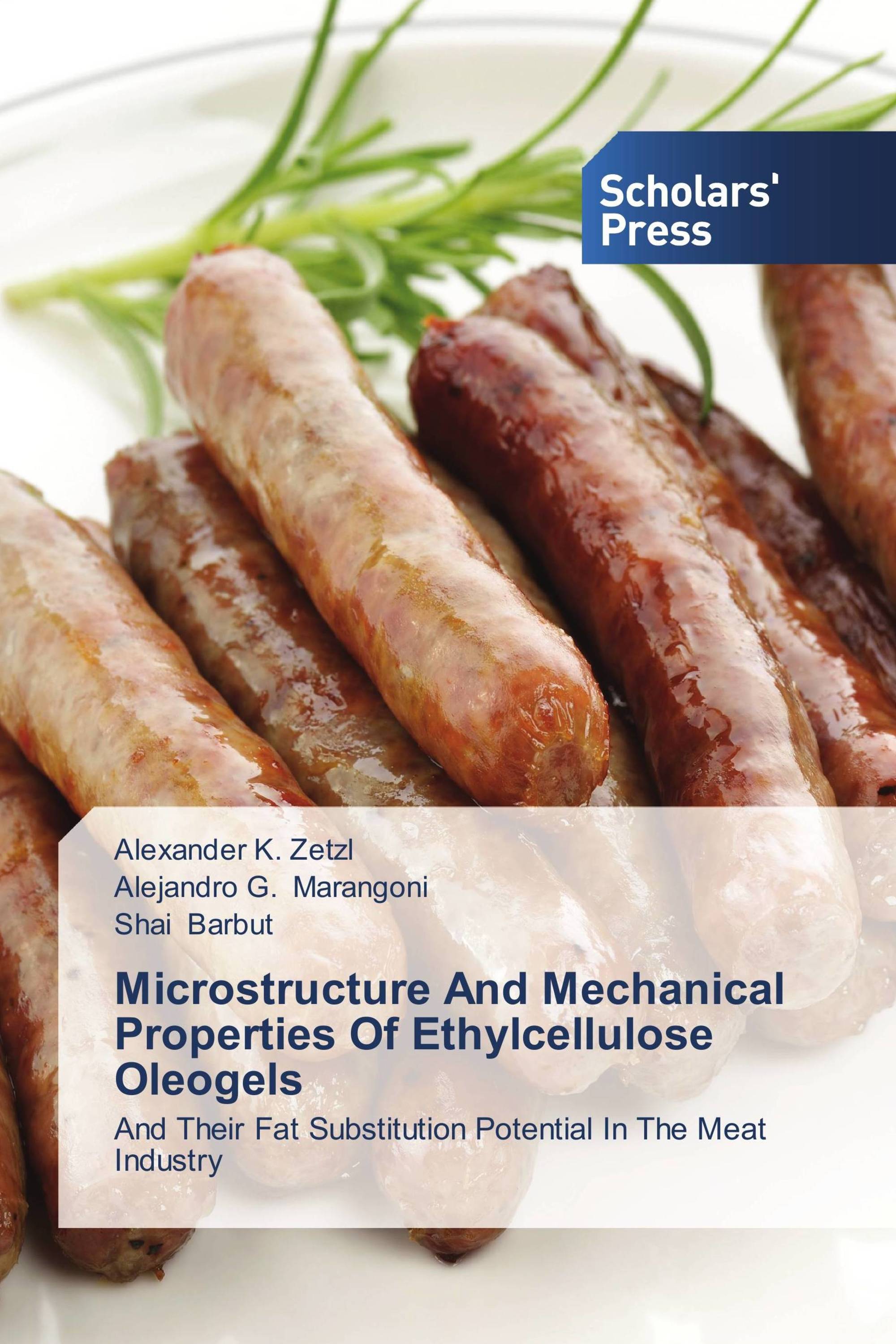Microstructure And Mechanical Properties Of Ethylcellulose Oleogels
And Their Fat Substitution Potential In The Meat Industry
€ 58,90
Texture profile analysis, small deformation rheology, and a back extrusion technique were utilized to identify and understand factors that affect ethylcellulose (EC) oleogel mechanical properties. Oil type, polymer molecular weight, polymer concentration, and surfactant incorporation were determined to be important factors that could be used to modify mechanical properties. Cryo-scanning electron micrographs revealed a a continuous polymer network entrapping oil filled pores. Significant differences in pore size (p < 0.05) were found in gels made with different vegetable oils, polymer concentrations, and when a surfactant was utilized in the oleogels however; the molecular weight of EC was not found to have a significant impact on average pore size. Canola oil oleogels were added into comminuted meat products for the first time as a substitute for added animal fat, producing product that did not differ texturally from control products. Finally, surface plasmon resonance (SPR) and ultraviolet light spectrophotometry (ULS) were also utilized in an attempt to provide quantitative protein-lipid interaction data.
Book Details: |
|
|
ISBN-13: |
978-3-639-71072-4 |
|
ISBN-10: |
363971072X |
|
EAN: |
9783639710724 |
|
Book language: |
English |
|
By (author) : |
Alexander K. Zetzl |
|
Number of pages: |
236 |
|
Published on: |
2014-03-11 |
|
Category: |
Other |
